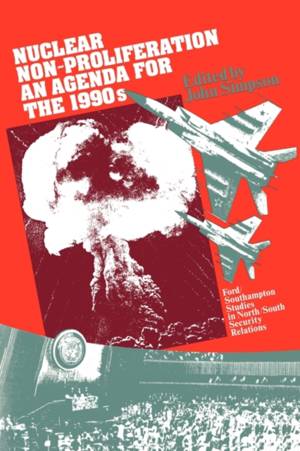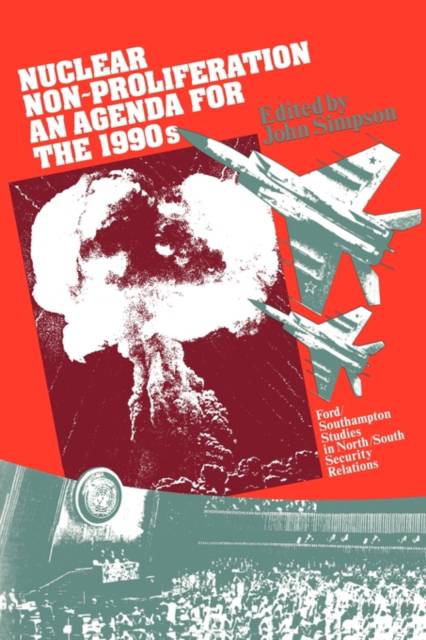
Bedankt voor het vertrouwen het afgelopen jaar! Om jou te bedanken bieden we GRATIS verzending (in België) aan op alles gedurende de hele maand januari.
- Afhalen na 1 uur in een winkel met voorraad
- In januari gratis thuislevering in België
- Ruim aanbod met 7 miljoen producten
Bedankt voor het vertrouwen het afgelopen jaar! Om jou te bedanken bieden we GRATIS verzending (in België) aan op alles gedurende de hele maand januari.
- Afhalen na 1 uur in een winkel met voorraad
- In januari gratis thuislevering in België
- Ruim aanbod met 7 miljoen producten
Zoeken
€ 60,95
+ 121 punten
Omschrijving
Originally published in 1987, this book is concerned with the possible acquisition of nuclear weapons by states not in possession of them and the international concern caused by this. Since 1968, the international arrangements designed to prevent this had been based upon the Nuclear Non-Proliferations Treaty, which had over 130 states as signatories at the time of publication. The initial period of application of this treaty ended in 1995, and a conference was held then to discuss its extension. This volume was the first public attempt to explore the problems surrounding this conference, to examine issues likely to determine its outcome, and to analyse the consequences if the conference were to fail to reach any agreement on extension. The international contributors were among the foremost students and practitioners in the area, and brought unique knowledge and experience to the subject. The result was a pathbreaking attempt to investigate a critical problem for international security in the 1990s, and to identify methods whereby international nuclear non-proliferation arrangements could be extended into the next century.
Specificaties
Betrokkenen
- Auteur(s):
- Uitgeverij:
Inhoud
- Aantal bladzijden:
- 256
- Taal:
- Engels
Eigenschappen
- Productcode (EAN):
- 9780521127103
- Verschijningsdatum:
- 3/12/2009
- Uitvoering:
- Paperback
- Formaat:
- Trade paperback (VS)
- Afmetingen:
- 152 mm x 229 mm
- Gewicht:
- 381 g

Alleen bij Standaard Boekhandel
+ 121 punten op je klantenkaart van Standaard Boekhandel
Beoordelingen
We publiceren alleen reviews die voldoen aan de voorwaarden voor reviews. Bekijk onze voorwaarden voor reviews.









